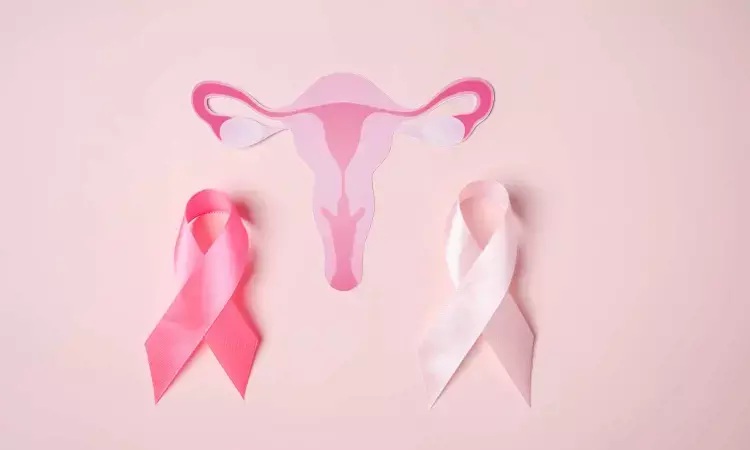- Home
- Medical news & Guidelines
- Anesthesiology
- Cardiology and CTVS
- Critical Care
- Dentistry
- Dermatology
- Diabetes and Endocrinology
- ENT
- Gastroenterology
- Medicine
- Nephrology
- Neurology
- Obstretics-Gynaecology
- Oncology
- Ophthalmology
- Orthopaedics
- Pediatrics-Neonatology
- Psychiatry
- Pulmonology
- Radiology
- Surgery
- Urology
- Laboratory Medicine
- Diet
- Nursing
- Paramedical
- Physiotherapy
- Health news
- Fact Check
- Bone Health Fact Check
- Brain Health Fact Check
- Cancer Related Fact Check
- Child Care Fact Check
- Dental and oral health fact check
- Diabetes and metabolic health fact check
- Diet and Nutrition Fact Check
- Eye and ENT Care Fact Check
- Fitness fact check
- Gut health fact check
- Heart health fact check
- Kidney health fact check
- Medical education fact check
- Men's health fact check
- Respiratory fact check
- Skin and hair care fact check
- Vaccine and Immunization fact check
- Women's health fact check
- AYUSH
- State News
- Andaman and Nicobar Islands
- Andhra Pradesh
- Arunachal Pradesh
- Assam
- Bihar
- Chandigarh
- Chattisgarh
- Dadra and Nagar Haveli
- Daman and Diu
- Delhi
- Goa
- Gujarat
- Haryana
- Himachal Pradesh
- Jammu & Kashmir
- Jharkhand
- Karnataka
- Kerala
- Ladakh
- Lakshadweep
- Madhya Pradesh
- Maharashtra
- Manipur
- Meghalaya
- Mizoram
- Nagaland
- Odisha
- Puducherry
- Punjab
- Rajasthan
- Sikkim
- Tamil Nadu
- Telangana
- Tripura
- Uttar Pradesh
- Uttrakhand
- West Bengal
- Medical Education
- Industry
Hormone Therapy for Menopausal Symptoms Linked to Increased Ovarian Cancer Risk: Study

Researchers have found that conventional hormone therapy for menopausal symptoms significantly increases the long-term risk of ovarian cancer and related mortality. This conclusion is drawn from an analysis of data from the Women's Health Initiative (WHI) clinical trials. This was presented at the American Society of Clinical Oncology 2024 annual meeting by Rowan T. Chlebowski and colleagues.
Hormone therapy has been approved for menopausal symptom relief in the U.S. since 1943. However, its long-term impact on ovarian and endometrial cancer incidence and mortality remains a subject of ongoing research. Observational studies have indicated an increased risk with conjugated equine estrogen (CEE) alone, but mixed results when CEE is combined with a progestin.
The study aimed to assess the effects of CEE and CEE plus medroxyprogesterone acetate (MPA) on the incidence and mortality of ovarian cancer, compared to a placebo, over 20 years of follow-up. The WHI clinical trials included 27,347 postmenopausal women aged 50-79 years without a history of breast cancer. Participants were divided into two groups: 10,739 women with prior hysterectomy received CEE alone, and 16,608 women with an intact uterus received CEE plus MPA. The planned treatment duration was 8.5 years, but the CEE/MPA trial was halted after 5.2 years due to increased breast cancer risk. Follow-up continued for 20 years to assess long-term outcomes.
• Among women who received CEE alone, 35 ovarian cancer cases were reported versus 17 in the placebo group (HR 2.04, 95% CI 1.14-3.65, P=0.014).
• Ovarian cancer mortality was nearly three times higher in the CEE group, with 25 deaths compared to nine in the placebo group (HR 2.79, 95% CI 1.30-5.99, P=0.006).
• All-cause mortality was also significantly higher in the CEE group (30 vs 12; HR 2.47, 95% CI 1.26-4.84, P=0.006).
• For women receiving CEE plus MPA, the therapy did not significantly increase ovarian cancer risk or mortality compared to placebo.
• The hazard ratios were 1.14-1.37 for ovarian cancer mortality, cancer-specific mortality, and all-cause mortality, respectively, none of which reached statistical significance.
• However, CEE/MPA was associated with a significant reduction in endometrial cancer incidence (106 vs 140; HR 0.72, 95% CI 0.56-0.92, P=0.010) and all-cause mortality (51 vs 72; HR 0.68, 95% CI 0.47-0.97, P=0.034).
The findings highlight a significant increase in ovarian cancer risk and mortality among women treated with CEE alone, suggesting a need for cautious consideration of hormone therapy, particularly for ovarian cancer survivors. Dr. Rowan Chlebowski emphasized the importance of these results for informing hormone therapy guidelines.
Dr. Eleonora Teplinsky noted that while the absolute risk remains low, this information is crucial for patient counseling and decision-making. She also pointed out that CEE is now less commonly used, and the applicability of these findings to modern estrogen formulations requires further investigation.
The study's findings suggest a substantial increase in ovarian cancer risk and mortality associated with CEE alone, reinforcing the need for careful consideration of hormone therapy use in menopausal women, particularly those with a history of ovarian cancer. These results underscore the importance of ongoing research and updated guidelines to ensure the safe and effective use of hormone therapy for menopausal symptoms.
Reference:
Rowan T. Chlebowski, Aaron K. Aragaki, Kathy Pan, Reina Haque, Thomas E Rohan, Mihae Song, Jean Wactawski-Wende, Dorothy Lane, Holly Harris, Howard D. Strickler, Andrew Kaunitz, Carolyn D. Runowicz. Menopausal hormone therapy and endometrial and ovarian cancer outcomes: Findings from the Women's Health Initiative randomized clinical trials" ASCO 2024; Abstract 10506.
Dr Riya Dave has completed dentistry from Gujarat University in 2022. She is a dentist and accomplished medical and scientific writer known for her commitment to bridging the gap between clinical expertise and accessible healthcare information. She has been actively involved in writing blogs related to health and wellness.
Dr Kamal Kant Kohli-MBBS, DTCD- a chest specialist with more than 30 years of practice and a flair for writing clinical articles, Dr Kamal Kant Kohli joined Medical Dialogues as a Chief Editor of Medical News. Besides writing articles, as an editor, he proofreads and verifies all the medical content published on Medical Dialogues including those coming from journals, studies,medical conferences,guidelines etc. Email: drkohli@medicaldialogues.in. Contact no. 011-43720751


